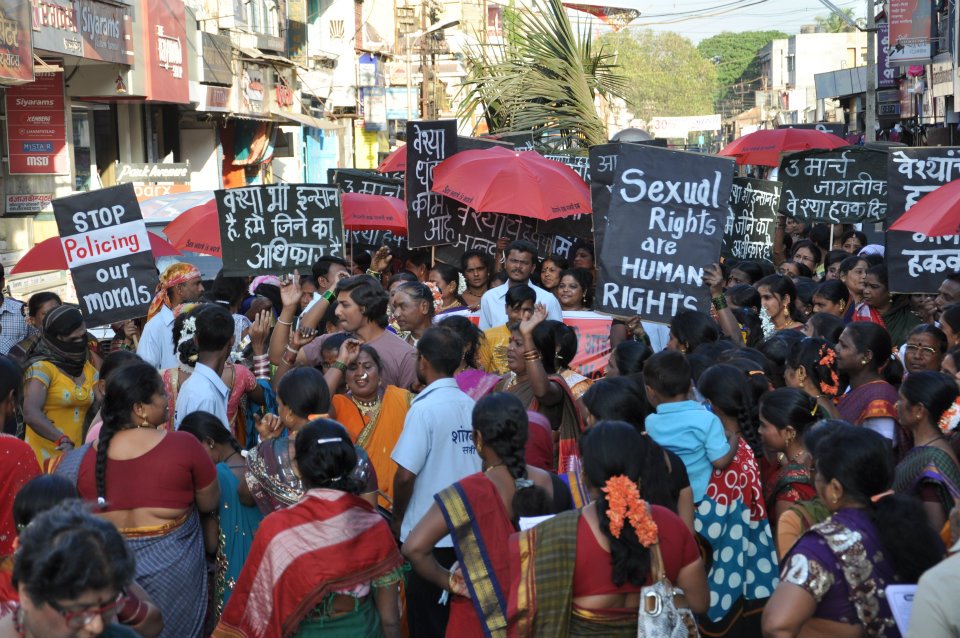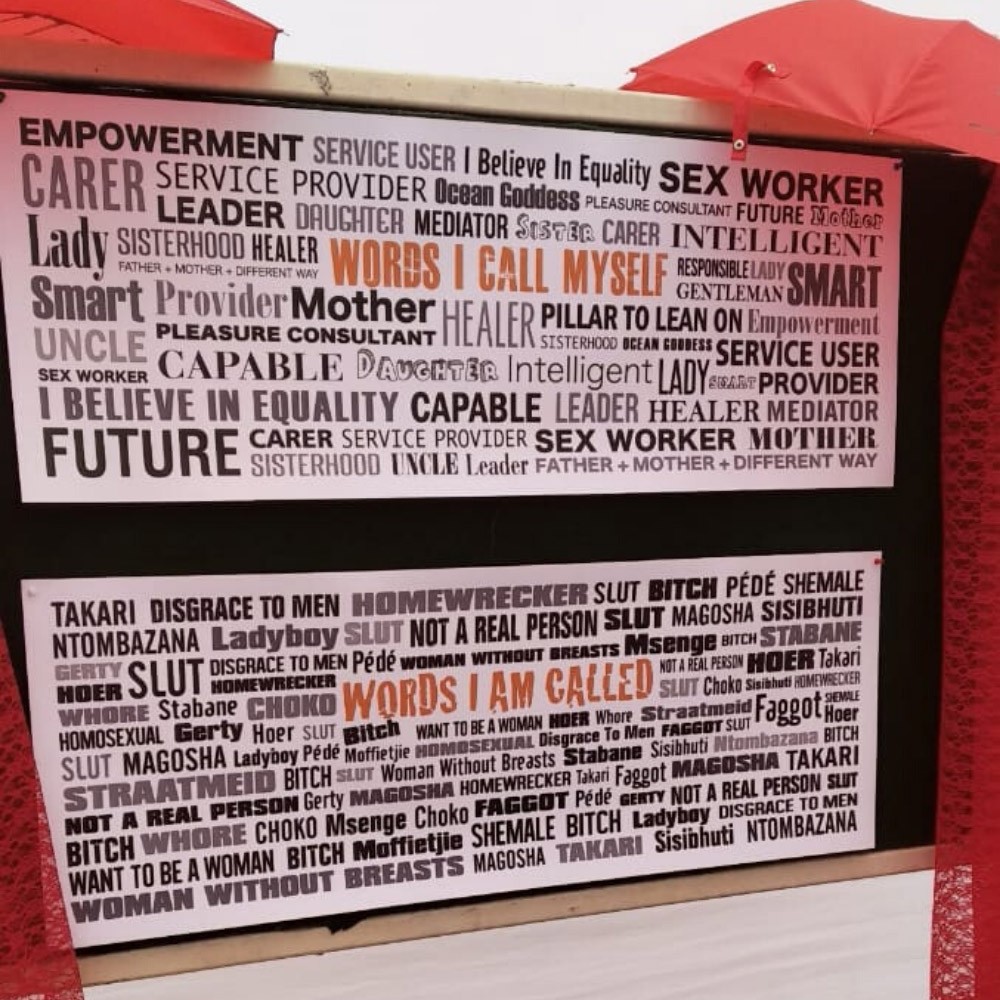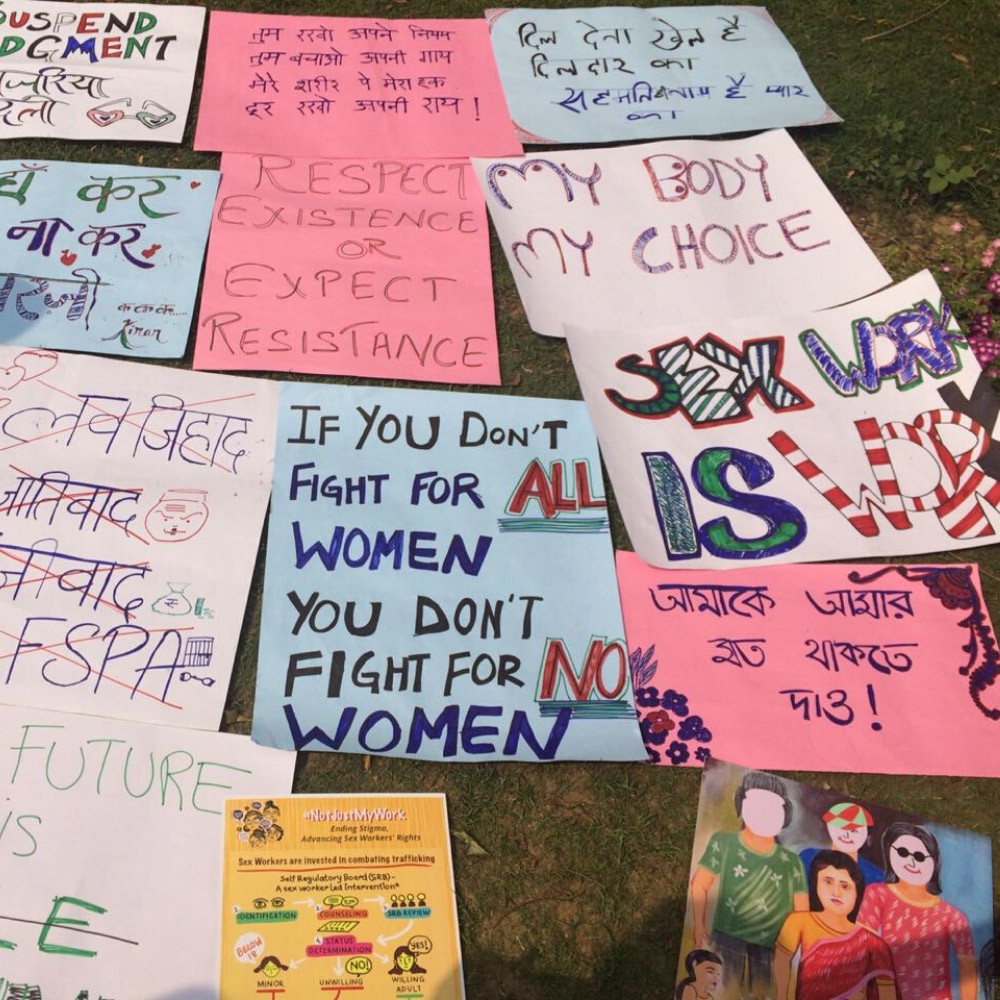Sex Worker Rights
“Society thinks this is ‘bad work’, but I think this is ‘good work’, because we use this work for the betterment of our children, their future, etc. This is like any other work, especially when we do it by [our] own free will. We should have rights, facilities, etc, like pension, like anyone else.”
Sex worker | National Consultation on Strengthening Partnerships for Advancing Sex Workers Rights in October 2017, New Delhi

The last decade has seen increased global attention and resources to combat trafficking. This effort and the discourse surrounding it has unfortunately been influenced by those that oppose sex work and resulted in conflation of sex work with trafficking. As a result, we are witnessing a strong push for further criminalization of sex work more often in regional and national legal and policy debates. This is primarily driven by legal reform where a growing number of countries are considering or implementing legislation focusing on ‘ending demand’, which criminalises the purchase of sexual services.
At the same, during there has been tremendous mobilisation of sex workers where they have been influential in calling for the recognition of sex work as work and demanding that sex work be decriminalised.
CREA allies with, collaborates with, and supports sex worker-led collectives, unions and groups to demand for full decriminalization of all aspects of consensual sex work and human rights for all people in sex work. Through various activities with its partners, it seeks to address the conflation of trafficking with sex work that is counter to sex workers’ rights, and challenge the stigmatization and exclusion of sex workers in women’s rights movements.
Through a decade of collaborative work on advancing sex workers’ rights, CREA and its partners have created unique spaces for dialogues between sex worker-led organizations, with women’s rights organizations and donors. As a result of increased visibility within and access to policy spaces, sex worker-led organizations and networks have been able to strengthen their advocacy using treaty monitoring bodies such as CEDAW (Convention for the Elimination of all Forms of Discrimination Against Women). Through its various institutes, CREA continues to bring sex worker rights issues to the fore and influence women’s rights activists to recognize adult consensual sex work.
Several reports and dialogues are available to provide more information on this work.

